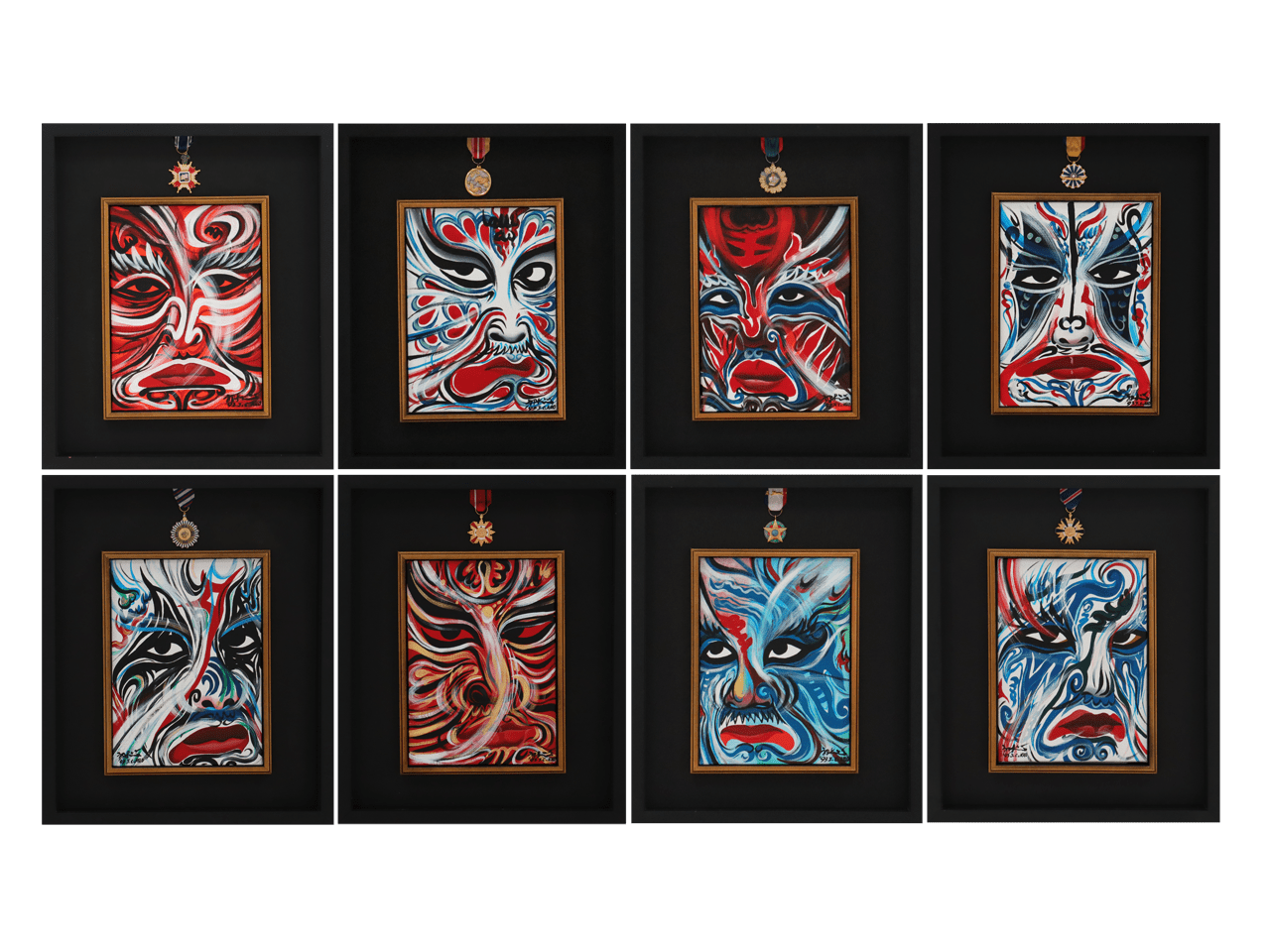Treating Taiwanese people as the protagonists, Kuo transformed these Lohans and used them as the metonymies for different ways of life in Taiwanese society.
Kuo’s Lohans in the human world do not live in a state of eternal dhyāna but in a transient moment with limited life. They are not so much spotless models in the transcendental world as sufferers in human society who have their own lessons to learn.

J. C. Kuo’s oeuvre tends to be sharply critical in style with common and direct artistic expression, addressing contemporary issues (e.g., the gap between haves and have-nots, excessive consumption, religious myths, the decline of traditional cultures, the interpersonal estrangement, and the rampant popular media) arising from the political development after the lifting of martial law and the social change induced by the economic boom in Taiwan.

